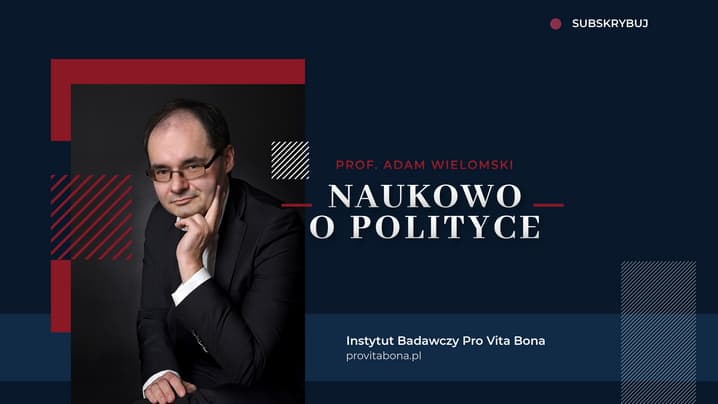At the University of Toronto, one man has shown us just how uphill the climb is against political correctness, and what sort of reaction we may expect if we fight it. He may also have shown us how to win.
In September 2016, in a series of lectures uploaded to YouTube, Jordan B. Peterson, an accomplished professor of psychology, marked his resistance to the use of various new gender pronouns, shibboleths of the transgender craze sweeping academic campuses and society as a whole. Two months later Peterson published a ringing op-ed piece, “The Right to be Politically Incorrect,” in the National Post, in which he declared,
“I will never use words I hate, like the trendy and artificially con-structed words “zhe” and “zher.” These words are at the vanguard of a post-modern, radical leftist ideology that I detest, and which is, in my professional opinion, frighteningly similar to the Marxist doctrines that killed at least 100 million people in the 20th century.
I have been studying authoritarianism on the right and the left for 35 years. I wrote a book, Maps of Meaning: The Architecture of Belief, on the topic, which explores how ideologies hijack language and belief. As a result of my studies, I have come to believe that Marxism is a murderous ideology. I believe its practitioners in modern universities should be ashamed of themselves for continuing to promote such vicious, untenable and anti-hu-man ideas, and for indoctrinating students with these beliefs. I am therefore not going to mouth Marxist words. That would make me a puppet of the radical left, and that is not going to happen. Period.”
The left’s response was swift and sustained. As Life Site News reports, Peterson was accused of violence by a fel-low panelist on The Agenda With Steve Paikin. Transgender activists insisted he was a bigot and a transphobe. His university sent him a letter warning him that his refusal would violate the rights of transgender people. Media out-lets pilloried him as a man using his position to express his hatred, and quoted progressives and LGBTQ activists saying the same thing.
Yet despite this deplorable treatment, Professor Peterson refused to give in, and be-cause of his steadfastness, he has developed a much wider audience for his sensible defense of moral sanity. He is no mere polit-ical pundit; he is a scholar who has care-fully researched his subjects.
Peterson’s Maps of Meaning was published by Routledge in 1999. It took the author more than 13 years to write it. Har-vey Shepard, writing in the Montreal Gazette in 2003, described the book as a re-flection of “its author’s profound moral sense and vast erudition in areas ranging from clinical psychology to scripture and a good deal of personal soul searching.” Thus, a decade and a half before his brush with infamy, the reviewer found that Peterson’s work was “both fully informed by current scientific and pragmatic methods, and in important ways deeply conservative and traditional.”
In 2016, Peterson’s criticism was partly directed against the Canadian federal government’s Bill C-16 (passed June 19 of this year), which proposed to add “gender identity and expression” as a prohibited ground of discrimination under the Canadian Human Rights Act, as well as to the list of identifiable groups against whom it is illegal under the Criminal Code to pro-mote genocide or publicly incite hatred. Peterson noted that he could be prosecuted under provincial human-rights laws if he refuses to call a transsexual student or faculty member by his preferred pronoun. He also observed that people could be prosecuted for the vaguest statements of disapprobation of transgenderism.
There are in Canada the very powerful federal and provincial human rights commissions that are constantly monitoring “hate speech” and springing into action whenever they believe they have come across it. The laws pertaining to hate speech are also very asymmetrically ap-plied to conservatives and Christians—as opposed to, for example, radical imams. The operations of these human-rights com-missions have been aptly described in Ezra Levant’s Shakedown: How Our Government Is Undermining Democracy in the Name of Human Rights (2009): When it comes to hu-man-rights complaints, “the process is the penalty.” Any aggrieved party can launch a complaint, and the accused has to spend considerable resources defending himself. These quasi-judicial tribunals can impose large fines and other conditions, without being subject to the stricter requirements of actual law courts in determining guilt. In April, Peterson was denied a Canadian Social Sciences and Humanities Re-search Council grant for the first time in his career, a refusal he interpreted as retaliation for his statements regarding Bill C-16. In response, The Rebel Media (a prominent conservative website run by Levant) launched a campaign that, by May 6, had raised $195,000—the equivalent of over two years of research funding. As of June, he had 300,000 YouTube subscribers, and his videos have received 14 million views. Peterson has also received funds through the crowd-funding site Patreon—reaching as high as $30,000 per month.
There have been raucous protests at some of Peterson’s public speeches, and he has been disinvited from some cam-pus events at which he had been scheduled to speak. But thus far, attempts by trans-gender and leftist activists to get Peterson fired or censured have gone nowhere: He is weathering the storm. Because of his steadfastness, he has inspired the formation of chapters of Students in Support of Free Speech at various Canadian campuses, including the University of Toronto. Over the summer, the SSFS’s “Canadian Free-dom Summit,” held near the University of Toronto campus, featured Peterson as a speaker. As reported by Sue-Ann Levy in the Toronto Sun, his latest mission is to try to “stop (university) indoctrination it its tracks” by advising freshman stu-dents to avoid certain disciplines “like the plague.”
Those university disciplines which have been “corrupted” by what he calls the Post-Modernist (neo-Marxist) academics include Women’s Studies, Racial Studies, Sociology, Anthropology and English Literature—with the very “worst offenders” based in the faculties of education.
“(The neo-Marxist) professors are playing these insane bordering on murderous intellectual games (with their students) . . . ” Peterson told the crowd . . . he’s putting together a website on the content of the disciplines he feels are “corrupted” that students can view to help them “make a more informed decision about which courses they want to take.”
Writing in the Toronto Sun about the same event, Anthony Furey notes, “There’s a new counterculture emerging on campuses, and free speech is at the front lines.” In a summer interview with The Ep-och Times, Peterson argued that Cultural Marxism has given rise to the present hysteria as a means of gaining power:
“By the end of the 1960s even the French intellectuals had to admit that communism was a bad deal.” From there, the communists played a “sleight of hand game, in some sense” and rebranded their ideology “under a postmodern guise. That’s where identity poli-tics came from.”
By now, our entire culture has been infiltrated by “extremely radical, post -mod-ern leftist thinkers who are hellbent on demolishing the fundamental substructure of Western civilization.”
Professor Peterson strongly objects to the usage of the term white privilege, which amounts to another leftist power-grab through identity politics:
The idea that you can target an ethnic group with a collective crime, regardless of the specific innocence or guilt of the constituent elements of that group, there is absolutely nothing that is more racist than that.
The title of a recent article in the National Post, by Chris Selley, says it all: “Jordan Peterson, hero of the anti-PC crowd, just keeps on winning.”
“He plans,” Mr. Selley writes, to curate “a series of conversations with moderate Muslims about the possibility of developing a bridge between that faith and the fundamental beliefs of the West” . . . He wants to do a series on the 100 greatest books of Western civilization. . . . And if he has the time—he says he’s going to ask U of T for a sabbatical—he would very much like to blow up the entire concept of a university, much of which he argues has become obsolete and corrupt: top-heavy with administration, weighing down recent graduates with massive debt in what should be their most creative and adventurous years, ideologically contaminated by “postmodernism” and ultimate-y, he believes, unsustainable.
All the universities have left is a stranglehold on accreditation, he argues, and he predicts someone will disrupt that status quo soon enough.
On its present course, Canadian society is heading for a place where, in most cases, to be a serious conservative active in social, political, and cultural affairs, “will be made impossible,” in Jordan Peterson’s view.
Not if he can help it.
Mark Wegierski
This text first appeared in the October 2017 edition of Chronicles: A Magazine of American Culture



